Experts outlined the possibilities of MME during the preliminary medical examination
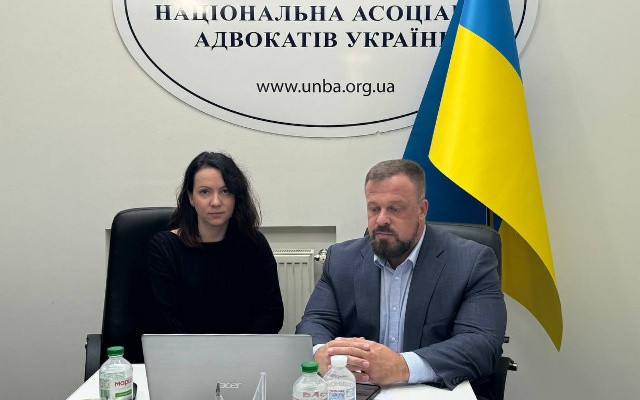
Forensic medical examination is an effective way to protect the rights of persons liable for military service, as well as a tool that ensures the objectives of military medical examination in the Armed Forces of Ukraine (high-quality medical examination of servicemen, conscription, and enlistment).
Experts discussed the possibilities of forensic medical examination during the military medical examination, appealing against the decisions of the military medical examination board, as well as the legal and medical aspects of these processes during a webinar organized recently by the Ukrainian National Bar Association.
One of the speakers at the event was Natalia Ergard, a doctor and forensic expert, who spoke about the aspects of confirming the diagnosis of persons undergoing a medical qualification commission. In particular, she drew attention to the way in which diagnoses that are not confirmed by objective research methods are interpreted by the MME, and gave examples of the most common diagnoses when an insufficiently detailed description by doctors of the X-ray picture of the pathological process gives the MME grounds to speculate and make a deliberately wrong decision on the degree of fitness for military service. N. Ergard also spoke about cases from her practical work when the conclusion of a forensic medical expert became the basis for re-passing the MME and declaring a person unfit for military service.
Ihor Kolesnikov, member of the Center for Methodological Assistance and Coordination of the Volunteer Movement of Advocates for Legal Protection of Servicemen of the Ukrainian National Bar Association, emphasized that in the context of armed aggression, human rights guaranteed by the Constitution and the fulfillment of the duty to protect the country have become even more important.
At the same time, compliance with the requirements of the legislation in the field of mobilization measures, performance of military duty, and observance of the rights of persons liable for military service during the military medical commissions is a prerequisite and obligation of the authorized persons of the relevant state bodies (TCC, MME, etc.). Therefore, the activity of an attorney-at-law as a performer of the constitutional function of providing legal aid has become extremely important.
According to I. Kolesnikov, in these matters the lawyer should be proactive. Everything should be translated into writing, recorded in time, appeals to the TCC, MME, etc., and from the person to whom the lawyer provides legal aid. «We need an active position, which consists in providing all available documents and information about the state of health, notifying about the provision of additional data and documents after examination by the relevant doctors, and obtaining expert advice», - he said.
A lawyer who has entered into a legal aid agreement with a client has the right to independently engage an expert on a contractual basis to conduct an expert examination of the materials provided and obtain a specialist's opinion.
At the same time, it should be remembered that there is no universal measure or rule of defense, the lawyer says. Each case is individual by the nature of its constituent actions, events, documents and information.
Popular news
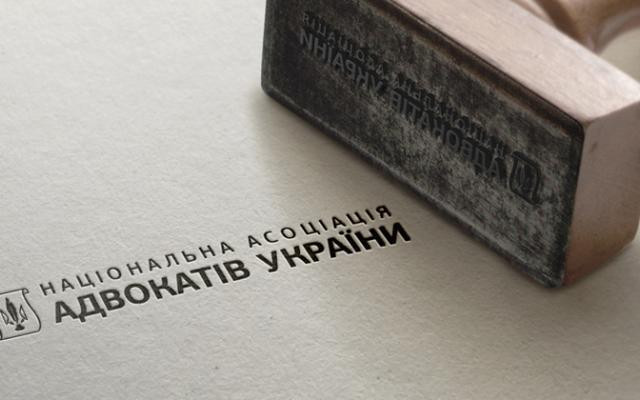
Self-government
The BCU demands a review of the composition of the government working group on reforming the advocacy profession
The President of the UNBA, BCU Lidiya Izovitova, appealed to the Cabinet of Ministers of Ukraine to review the composition of the working group on improving legislation in the field of advocacy and legal practice.

Discussion
Why lowering the age of marriage lacks legal logic
Although until 2012 there was a provision in family law that allowed children to marry from the age of 14 under certain circumstances, its return to Ukrainian law would contradict international obligations and the logic of criminal law.
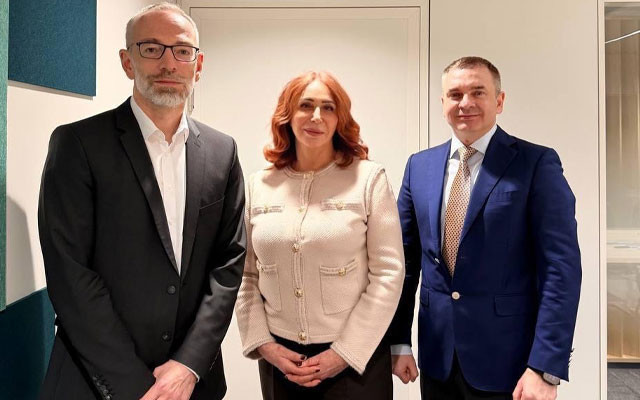
European integration
Open dialogue between the UNBA and the European Commission on the path to EU
The Ukrainian National Bar Association held a working meeting in Brussels with Mr Wolfgang Nozar, Head of Unit for Governance, Rule of Law and Financial Assistance, Directorate-General for Enlargement and Eastern Neighbourhood (DG ENEST), European Commission.

Self-government
A report on Ukrainian advocacy was presented in the European Parliament
Can a shadow report on advocacy replace the political framework of the Roadmap on the rule of law with demands for the restructuring of self-government? Where is the line between accountability and the seizure of institutions? And how can we respond to narratives with data rather than impressions?
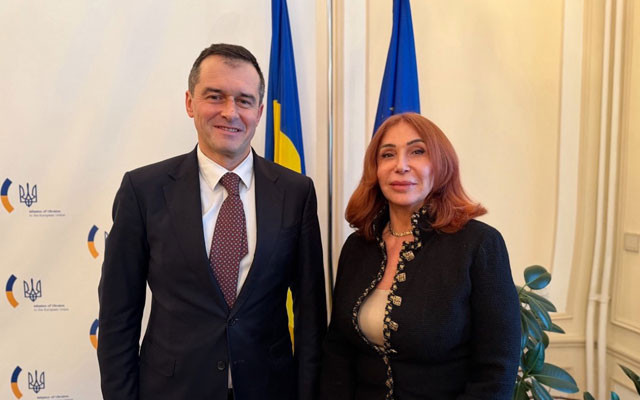
European integration
UNBA and Ukraine's representation to the EU have synchronized their priorities
On February 5, in Brussels, the President of the UNBA, BCU Lidiya Izovitova held a working meeting with the Ambassador Extraordinary and Plenipotentiary of Ukraine, Representative of Ukraine to the European Union Vsevolod Chentsov.
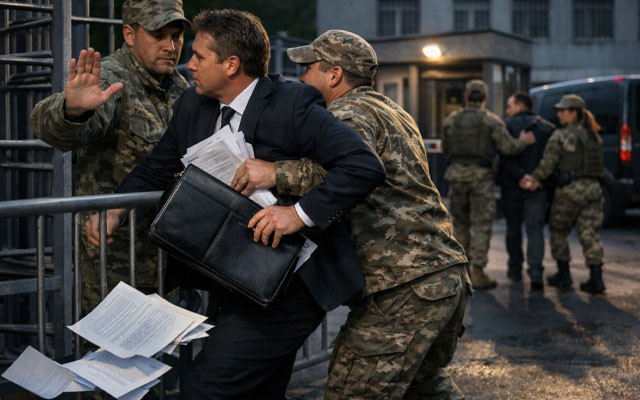
Guarantees of the practice of law
Proceedings opened following attack on advocate in Dnipro
The Committee for the protection of advocates' rights and guarantees of legal practice of the UNBA appealed to law enforcement agencies in connection with an advocate's report of an attack while performing his professional duties. The information was entered into the Unified Register of Pre-trial Investigations and a pre-trial investigation was initiated.
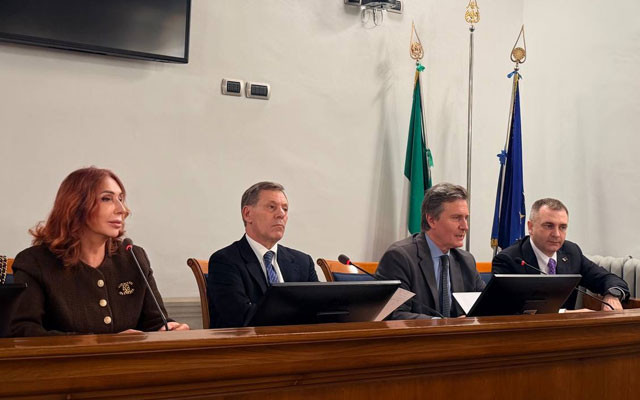
Interaction
«With us — to Europe»: Italian advocacy supports UNBA initiatives
On January 30, a meeting was held in Rome between a delegation from the Ukrainian National Bar Association and the National Bar Council of Italy (Consiglio Nazionale Forense, CNF) on the standards and practices of the legal profession and their significance for Ukraine's European integration process.
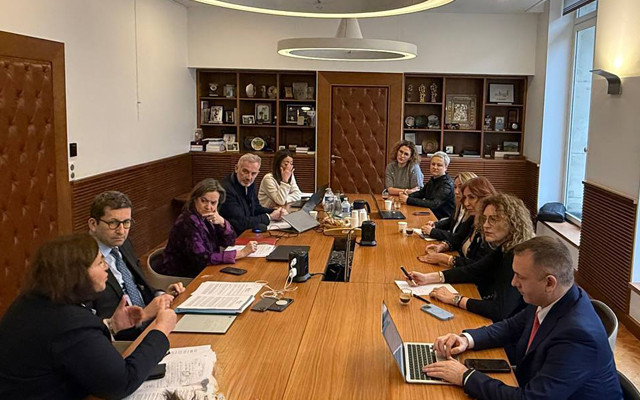
Interaction
France confirms cooperation with UNBA on reforms in the field of the rule of law
On January 29, a working meeting between representatives of the Ukrainian National Bar Association and the French National Bar Council (Conseil National des Barreaux, CNB) took place in Paris.
Publications

Volodymyr Matsko Extradition as a systemic form of rights violations

Victoria Yakusha, Law and Business The anti-corruption vertical cannot «take care» of the Bar as an institution, - acting head of the HQDCB

Censor.net Protecting advocates – protecting justice: addressing concerns about the new law

Ihor Kolesnykov A BRIEF SUMMARY REGARDING THE APPLICATION OF THE ORDER ON EXTENDED CONFISCATION IN LATVIA REGARDING FINANCIAL ASSETS OF…

Valentyn Gvozdiy WORKING IN A WAR ZONE

Lydia Izovitova Formula of perfection

Sergiy Vylkov Our judicial system is so built that courts do not trust advocates

Iryna Vasylyk Advocacy in the proclamation of Independence of Ukraine
